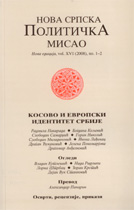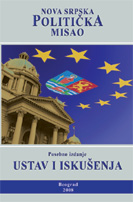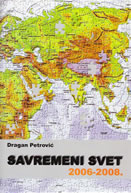| NSPM in English | |||
Yanukovych’s Election Triumph: A Blow to US “Orange” Project to Isolate Russia |
 |
 |
 |
| субота, 06. март 2010. | |
|
(Global Research, 3.3.2010)
For Yanukovych, the victory was sweet revenge for a humiliating debacle in the previous election. For the U.S., his triumph marked the collapse of its most ambitious geopolitical project in post-Cold War Eastern Europe. The American project got off to a dazzling start five years ago when the pro-Russian presidential candidate, then Prime Minister Yanukovych, was stripped of victory in the run-off against Yushchenko over alleged rigging of the election result. Riding the high wave of popular rejection of the corrupt oligarchic regime in post-Soviet Ukraine, Yushchenko and his firebrand ally, Yulia Tymoshenko, led tens of thousands of supporters on to the streets of the capital, Kiev, in what came to be known as the orange revolution, which was orchestrated and financed by Western governments and foundations. A rerun of the vote, ordered by the court under pressure from street protests and in violation of the Ukrainian Constitution, brought victory to Yushchenko. Ukraine’s was the second “coloured revolution” in the former Soviet Union after the “rose revolution” in Georgia a year earlier. Washington’s plans to trigger a domino effect in the Russia-friendly regimes in the former Soviet states faltered in Kyrgyzstan. The “tulip revolution” staged in that Central Asian state in March 2005 helped topple the government but failed to change Kyrgyzstan’s pro-Moscow orientation. Georgia and Ukraine became linchpins in the U.S. strategy of encircling Russia with pro-Western “new democracies”. Washington vigorously lobbied to grant North Atlantic Treaty Organisation (NATO) membership to both countries and used them to infuse new life into GUAM (Georgia, Ukraine, Azerbaijan and Moldova), the loose pro-Western grouping of the former Soviet states. GUAM was to play the double role of acting as a cordon sanitaire between Europe and Russia and as a new energy corridor to transport Caspian oil and gas to Europe by bypassing Russia. While Georgia provided a strategic bridgehead for the U.S. in the Caucasus and a gateway to Central Asia, Ukraine was used as a battering ram to disrupt Moscow-led reintegration of post-Soviet economies and undercut Russia’s resurgence. Yushchenko effectively turned Ukraine into a U.S. client state and a pawn in Washington’s Russia strategy as formulated by former U.S. National Security Adviser Zbigniew Brzezinski in 1997 in his bookThe Grand Chessboard: American Primacy and Its Geostrategic Imperatives. “Without Ukraine, Russia ceases to be an empire in Eurasia,” Brzezinski had suggested. Yushchenko, the 55-year-old former banker, drew extra inspiration for his anti-Russian course from his second wife, Katherine Chumachenko, an American of Ukrainian descent whom he married in 1999. Bruce Bartlett, a Republican conservative who had worked with Katherine Chumachenko at the State Department and in the White House, recalled: “Anyone who met Kathy quickly discovered that the liberation of the Ukraine from communist tyranny was her primary mission in life, to the exclusion of almost everything else.” Yushchenko made NATO membership an absolute priority of his presidency, notwithstanding the fact that a mere 20 per cent of Ukrainians embraced the idea. He sought to evict the Russian Black Sea fleet from its Soviet-era main naval base in Sevastopol in Ukraine’s Crimea even though the lease agreement was to expire in 2017, and to turn the Black Sea into a NATO lake. He invited the U.S. to deploy a missile shield targeting Russia on Ukrainian territory. He personally ordered massive supplies of heavy armaments to Georgia as it prepared for war against Russia and sent Ukrainian military specialists to take part in combat operations when Georgia attacked Russian peacekeeping forces in South Ossetia in August 2008. Yushchenko blocked Russia’s participation in modernising Ukraine’s rundown gas pipelines and provoked endless “gas wars” with Russia, disrupting the transit of Russian gas across Ukraine to Western Europe and spoiling Russia’s relations with Europeans. Curiously, Yushchenko’s departure was met with relief, not only in Moscow but also in Brussels and Washington. His presidency was a total disaster on the domestic front. Ukraine’s democracy has degenerated into a power struggle between rival oligarchic clans masquerading as political parties. When he assumed power, he promised to root out corruption, which plagued Ukrainian business and politics. But five years hence, bribery and cronyism have only increased several fold. His bitter infighting with the “orange” princess, Yulia Tymoshenko, paralysed decision-making as Ukraine struggled to cope with an economic crisis owing to falling living standards and soaring prices. Ukraine’s commodity-dominated economy has been shattered by the global crisis. Last year, Ukraine was the worst performing big economy in Europe. Its gross domestic product shrank by 14 per cent, even as inflation soared to 15 per cent. Ukraine is practically bankrupt. The International Monetary Fund has suspended a $16-billion lifeline it granted Ukraine last October. The country’s sovereign debt stands at $100 billion and the state coffers are empty. Yushchenko’s presidency fossilised Ukraine’s split into pro-Russian east and south and pro-European west. The outcome of the 2010 presidential election showed that the country remains as deeply divided as it was five years ago: Yanukovych got 80 to 90 per cent of the votes in the eastern and southern provinces and Yulia Tymoshenko won just as heavily in the western province. Yushchenko’s policy of shutting down Russian schools and Russian television, squeezing out the Russian language, and glorifying Second World War Nazi collaborators was applauded in the country’s west but was rejected by ethnic Russians living in the eastern and southern regions. The U.S’ orange project for Ukraine failed because its patently anti-Russian thrust had no chance to succeed in a country where half the population speaks Russian and which shares close economic, linguistic and religious ties with Russia. One could not hope to overcome the east-west divide in Ukraine by antagonising its Russian speakers in the east and playing up to anti-Russian nationalists in the west. As Ukraine drifted away from Russia, it gained little from the U.S. and Europe. Expectations that the West would remunerate Yushchenko’s anti-Russian course proved illusory. NATO membership for Ukraine was firmly blocked by France and Germany, who feared a revival of Cold War divisions in Europe. The European Union, likewise, shut its doors on Ukraine as the nation with a population of 48-million is too large and too poor to be integrated into the E.U. The West eventually turned away from Yushchenko, dismayed by his inept leadership, lack of reforms and vicious feuding with Yulia Tymoshenko. The U.S’ growing focus on securing Russian support in Afghanistan and Iran further discouraged the West from meddling in Ukraine’s election. For its part, Russia crafted a smart win-win strategy in the presidential election. In contrast to the previous poll, when its heavy-handed support for Yanukovych backfired, this time Moscow wisely hedged its bets between the two front runners, engaging both and refusing to be too closely identified with either of them. The Kremlin’s soft-power approach was designed to ensure that whoever won the presidency would be a friend of Russia. This policy paid off. Both Yanukovych and Yulia Tymoshenko ran on a platform of resetting good relations with Russia. There are no illusions in Moscow that under Yanukovych Ukraine will abandon its long-term goal of integration with Europe, but there is an expectation that pragmatic interest will make it steer a more balanced course with regard to the East and the West. After all, Russian oil and gas meets 80 per cent of Ukraine’s energy needs and brings billions of dollars in transit fees. Russia accounts for a quarter of Ukraine’s foreign trade, although the share has come down since the orange revolution. Moscow is Kiev’s best hope for bailing out the crisis-hit Ukrainian economy. The Wall Street Journal described the Ukrainian election as a “geopolitical shift” that is “being magnified by Ukraine’s imminent national bankruptcy – casting Russia in the role of Abu Dhabi to Ukraine’s Dubai”. The end of the orange regime indeed alters the balance of power in Eastern Europe. “Relations with Russia and the CIS [Commonwealth of Independent States, a Russia-dominated loose alliance of former Soviet republics] will be our priority,” Yanukovych said in his first statement after winning the run-off. “Our countries are closely tied by economy, history and culture.” Yanukovych has voiced support for the Russian proposal to set up an international consortium to manage the Ukrainian gas pipelines and has called for associate membership in the Common Economic Space union, which Russia is building with Kazakhstan and Belarus. The Ukrainian counter-revolution puts a clear stop to NATO’s eastward expansion. Yanukovych has ruled out seeking NATO membership for Ukraine and signalled a readiness to consider the extension of the lease of the Russian Black Sea naval base at Sevastopol beyond 2017. Without Ukraine, the orange cordon sanitaire around Russia will fall apart, and GUAM, as an anti-Russian alternative to the Russia-dominated CIS, will wilt. The same fate awaits Yushchenko’s proposal to create a new transport route for Caspian oil to Europe across Ukraine, bypassing Russia. Georgia, which is still reeling under the thrashing Russia gave it in a five-day war in 2008, has lost a valuable ally. It remains to be seen whether the U.S. will accept these strategic shifts. The odds are it will not despite President Barack Obama’s policy of “reset” in relations with Russia. The U.S. may have its hands full for now in Afghanistan and Iraq, but Ukraine has never gone off its radar screens. Four months after the announcement of the “reset” in February 2009, Vice-President Joe Biden visited Ukraine and Georgia to demonstrate support for the “colour revolutions” leaders and their NATO aspirations. During a high-profile tour of Eastern Europe in October, Biden set forth what he called “not negotiable” principles in relations with Russia: the U.S. “will not tolerate” any “spheres of influence” and Russia’s “veto power” on the eastward expansion of NATO. He reiterated Washington’s commitment to the policy of regime change in the Russian neighbourhood, asking East Europe to help the U.S. “guide” former Soviet states to democracy. The U.S. has moved to re-arm and train the Georgian army, ignoring explicit Russian concerns that Georgia may be planning a new war to take revenge for its defeat in 2008. Ahead of the election in Ukraine, Brzezinski, who is now foreign policy guru to Obama, issued a blunt anti-Russia warning to Ukrainians. In an interview to the Ukrainian service of Voice of America, he said that an “outside power” was out to “manipulate” their vote and turn their country into a “satellite” or “even a part of a larger imperial system”. In a keynote address at Ecole Militaire in France on January 29, U.S. Secretary of State Hillary Clinton confirmed Washington’s refusal to recognise Russia’s special interests in the former Soviet state. “We object to any spheres of influence claimed in Europe in which one country seeks to control another’s future,” she said. She also rejected Russian President Dmitry Medvedev’s proposal to negotiate a new security pact for Europe, which Moscow sees as a litmus test of the West’s readiness to accept the principle of equal and indivisible security on the continent. Washington has announced plans to deploy Patriot missiles in Poland near the Russian border and missile interceptors in Romania. By symbolic coincidence, both announcements were made between the first and second rounds of the Ukrainian election. Russian-American competition in the former Soviet space will continue. Russia’s chances of winning it will ultimately depend on its ability to build a strong economy and a democratic political system that will be more attractive to its neighbours than the West’s “orange” projects. |
Од истог аутора
Остали чланци у рубрици
- Playing With Fire in Ukraine
- Kosovo as a res extra commercium and the alchemy of colonization
- The Balkans XX years after NATO aggression: the case of the Republic of Srpska – past, present and future
- Из архиве - Remarks Before the Foreign Affairs Committee of the European Parliament
- Dysfunction in the Balkans - Can the Post-Yugoslav Settlement Survive?
- Serbia’s latest would-be savior is a modernizer, a strongman - or both
- Why the Ukraine Crisis Is the West’s Fault
- The Ghosts of World War I Circle over Ukraine
- Nato's action plan in Ukraine is right out of Dr Strangelove
- Why Yanukovych Said No to Europe

.jpg)








 The victory of opposition leader Viktor Yanukovych in the presidential election in Ukraine marked a crushing defeat for the United States-masterminded “orange revolution” designed to weaken and isolate Russia. In the first round of the election, held on January 17, voters threw out the anti-Russian President Viktor Yushchenko, who was propelled to power by the orange revolution in 2004. Yushchenko polled a dismal 5 per cent of the votes and dropped out of the race. In the run-off on February 7, Yushchenko’s orange-ally-turned-foe, Prime Minister Yulia Tymoshenko, lost to Yanukovych by a margin of 3.5 per cent of the votes.
The victory of opposition leader Viktor Yanukovych in the presidential election in Ukraine marked a crushing defeat for the United States-masterminded “orange revolution” designed to weaken and isolate Russia. In the first round of the election, held on January 17, voters threw out the anti-Russian President Viktor Yushchenko, who was propelled to power by the orange revolution in 2004. Yushchenko polled a dismal 5 per cent of the votes and dropped out of the race. In the run-off on February 7, Yushchenko’s orange-ally-turned-foe, Prime Minister Yulia Tymoshenko, lost to Yanukovych by a margin of 3.5 per cent of the votes.











